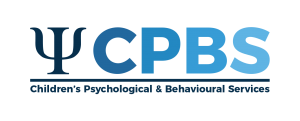Our Services
Hourly Rate: $225.00 for all psychological services
* Recommended rate previously set by the Ontario Psychological Association (OPA)
Hourly Rate: $225.00 for all psychological services
* Recommended rate previously set by the Ontario Psychological Association (OPA)
Hourly Rate: $225.00 for all psychological services
* Recommended rate set by the Ontario Psychological Association (OPA)
Birth to Emerging Adulthood
Structured and normed-referenced evaluation of a student’s intellectual, academic, and social-emotional development in order to provide individualized recommendations based on one’s specific learning profile (please see below for further details)
Semi-structured interview with some standardized testing to assist with the diagnosis and treatment of various psychiatric conditions found in children and adolescents
Needs-based risk assessment that is used to better inform short- and long-term intervention goals of clients
Consultation services are available for clients and their families in conjunction with consenting individuals and organizations (e.g., parents, school boards, community agencies, hospitals)
Length and type of consultation services are dependent on client needs and the purpose of the consultation
Please contact the clinic for further details regarding these services
Individualized intervention plans are tailored to the specific needs of each client and integrate various treatment modalities, including but not limited to:
– Cognitive Behaviour Therapy (CBT)
– Dialectical Behaviour Therapy (DBT) – Skill Building
– Talk & Play Therapy
– Mindfulness
– Brief Solution-Focused Therapy
– Collaborative Problem-Solving (CPS)
– Emotion-Focused Family Therapy (EFFT)
– Parent-Child Interaction Therapy (PCIT)
– MATCH-ADTC
– Family Systems
Efficacy research indicates that evidence-based therapy typically range from 8 to 20 sessions but more brief and focused treatments are also available based on the needs of the client and family
Treatment sessions are typically structured using the COPE Program developed by Dr. Clarke at the clinic
1. Educational Psychological Assessment:
2. Diagnostic Psychological Assessment:
3. Trauma & Crisis Management:
DISCLAIMER: Total cost varies according to the objective(s) of the assessment, needs and complexity of the case, as well as the time spent delivering psychological services. Any changes and/or additional costs will be discussed prior to proceeding with services.
CBT GROUP (COPE PROGRAM)
DBT GROUP (SKILL BUILDING)
EFFT GROUP (PARENTING PROGRAM)
Group Rate:
COPE PROGRAM: $450.00 for 6-week CBT group therapy
* Group rates vary based on the type of programming provided.
The clinic provides a wide range of assessment, intervention, and consultative services for a
variety of psychiatric conditions, including but not limited to:
Children’s Psychological & Behavioural Services
![]() 226-600-4712
226-600-4712
![]() 1152 King St. E.
1152 King St. E.
Cambridge, ON N3H 3P6
Monday – Sunday
8:00 a.m. – 8:00 p.m.
(by appointment only)
